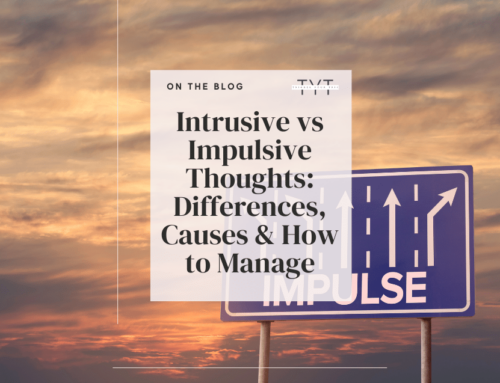In the intricate landscape of personal growth and self-discovery, the concept of shadow work stands out as a profound and transformative practice. Delving into the depths of our subconscious, shadow work prompts involve confronting and embracing the hidden aspects of ourselves that often remain unexamined, just like therapy.
Engaging with these obscured facets paves the way for profound self-awareness, emotional healing, and unbridled personal development. This journey of introspection could not go without thoughtful, deep shadow work prompts that encourage honest exploration.
In this comprehensive guide, I present an extensive compilation of over 100 top shadow work prompts meticulously designed to aid you in unblocking your untapped potential and fostering substantial growth on your path to self-realization.
Considering therapy but finding it costly? Are you struggling to choose a mental health professional?
Let me help you get started! This online therapy toolbox is more efficient and affordable than any other virtual therapy I’ve tried, including BetterHelp and Talkspace. It instantly matches you with a therapist and saves you hours of research for the right one (with unlimited daily messaging and support from your therapist). By leveraging the power of CBT (Cognitive Behavioral Therapy) -the most common psychotherapeutic approach for treating mental health problems- your therapist will guide you to a happier self through weekly sections, CBT worksheets, unlimited messaging, and daily worksheet replies. Bonus price for the fact that you can do your sessions wherever you are in the world and message your therapist anytime, daily.
What Is Shadow Work?
Shadow work is a psychological and reflective practice to explore the hidden and often suppressed aspects of one’s personality and emotions, usually known as the “shadow self.” Rooted in the theories of renowned psychologist Carl Jung, it involves delving into the “shadow” – the part of our psyche that consists of repressed thoughts, feelings, desires, and memories.
These elements are often considered socially unacceptable or incompatible with our self-image, leading to our repressed shadow self.
Engaging in shadow work entails acknowledging, understanding, and integrating these aspects into our conscious awareness. We can better understand our motivations, behaviors, triggers, and inner voice by confronting and accepting our shadow side. This process enables profound personal growth, emotional healing, and heightened self-awareness. Shadow work can be done through various methods, such as journaling (more on the shadow work journal prompts later), meditation, therapy, and creative expression.
While shadow work can be challenging and uncomfortable, it holds the potential for everyone to process emotions, release emotional blockages, reduce inner conflicts, and foster a more authentic and balanced self and mental health.
By shedding light on our hidden dimensions, we can ultimately lead more fulfilling lives and cultivate healthier relationships – not only with others but also with ourselves.
Related: The Best Manifestation Journal: How I Attracted My Dream Life in 6 Steps
How The Shadow Self Affects Your Subconscious
The shadow self profoundly influences the subconscious mind, shaping our thoughts, emotions, and behaviors in subtle and often unrecognized ways. As introduced by psychologist Carl Jung, the concept refers to the repository of aspects within us that are suppressed, denied, or deemed socially unacceptable.
These unexplored facets, originating from childhood experiences, societal conditioning, and personal traumas, become relegated to the subconscious due to their incongruence with our conscious self-image.
Despite their relegation, these suppressed elements continue to operate beneath the surface, influencing our perceptions, decisions, core values, beliefs, and thus, our lives. The shadow self casts its influence through projection, a psychological defense mechanism where we unconsciously attribute our disowned traits to others.
For instance, qualities we deem undesirable within ourselves may be projected onto others, triggering emotional reactions and conflicts.
Furthermore, the shadow self often materializes in our dreams, symbolically representing unaddressed psychological content. These dreams provide glimpses into the subconscious, offering an opportunity for introspection and integration.
Unresolved shadow aspects can also manifest as repetitive patterns or toxic traits in our daily lives. These personality traits evoke intense emotions that stem from past experiences but are hidden from our conscious awareness, making it difficult to process the reasoning behind negative emotions.
Engaging with the shadow self through shadow work involves confronting these repressed elements intentionally. Acknowledging and integrating these aspects are part of our shadow work journey and can diminish their unconscious grip on our thoughts and behaviors, including self-sabotage.
This process requires self-compassion, self-reflection, and a willingness to embrace discomfort. As we shed light on the shadow, we disempower its ability to control our subconscious reactions and enable personal growth and emotional healing.
In a nutshell, the shadow self’s influence on the subconscious underscores the necessity of exploring and integrating these hidden facets. By doing so, we better understand our shadow traits, mitigate projection-driven conflicts, and foster a more authentic and harmonious relationship with our inner selves and the external world.
Related: The 7 Stages of Trauma Bonding; Here’s Why You Can’t Leave
What Are The Triggers For Shadow Work?
A trigger in shadow work is an (unintended) reminder to the younger self of a past traumatic experience. For example, our low self-esteem and self-sabotaging behavior are not triggers — but acknowledgments that enable us to become aware of past traumas buried in our subconscious.
In shadow work, we need to recognize our triggers, which can easily show us our wounds and shadow self.
Recurring Relationship Issues
Continuously facing similar challenges or conflicts in various relationships might indicate that a surfacing issue keeps making your bonds dysfunctional, and shadow work needs to be done.
Related: Why Do I Get Attached So Easily? The Main Reasons & 7 Tips
Persistent Self-Sabotage
Consistently undermining your own efforts and goals without understanding why might have their roots in your childhood.
Strong Emotional Reactions & Feeling Controlled by Emotions
Reacting strongly to situations or comments, often disproportionately to the trigger, and feeling overwhelmed by the occurring emotions might indicate trauma.
Emotional Permanence Explained & Top Tips on How to Cope
Limiting Beliefs & Patterns of Self-Criticism
Holding onto negative beliefs and consistently being overly critical of yourself can hinder personal growth and require deep shadow work.
Chronic Procrastination & Avoidance of Certain Topics
Avoiding and postponing discussions, decisions, or thoughts about specific topics that evoke discomfort or stress might indicate shadow traits.
Related: Dismissive Avoidant Attachment: The Push & Pull That Destroys
Where Do I Start With Shadow Work?
Review your child-self
Reviewing your child-self is integral to practical shadow work as it unveils the origins of suppressed emotions, beliefs, and behaviors. Understanding early experiences and their impact gives you insight into how your shadow aspects were formed.
This awareness enables you to address root causes, fostering healing and transformation. You can integrate these aspects by compassionately acknowledging your past self, reducing your unconscious influence, and promoting emotional growth. Reviewing your child self empowers you to reshape negative patterns, enhance self-awareness, improve relationships, and have a more authentic, fulfilled life.
Related: 9 Mommy Issues in Men That Make Him Avoid Commitment
Spot your projections
Spotting projections is pivotal in shadow work as it uncovers hidden aspects of the self. Recognizing traits you dislike in others often mirrors unacknowledged parts within you. Acknowledging projections gives you a unique vantage point into your shadow aspects. This process dismantles barriers to self-awareness, fostering personal growth and emotional healing.
Integrating projected qualities cultivates empathy and authenticity, improving relationships and self-acceptance. Identifying projections thus dismantles inner conflicts, enabling profound transformation and alignment with your true self.
Analyze your triggers
Analyzing your triggers is essential in shadow work as it unveils areas of unresolved emotions and hidden aspects. As mentioned, triggers indicate unhealed wounds, often connected to past experiences.
By exploring and analyzing your reactions, you access valuable insights into your shadow self, shedding light on suppressed beliefs and patterns. This self-awareness dismantles automatic responses, allowing for conscious choices.
As you confront these aspects, you liberate yourself from their unconscious hold, enabling profound transformation and a more authentic, empowered life.
Observe your patterns
Your patterns reveal recurring behaviors and themes that stem from hidden aspects, and recognizing these patterns offers a roadmap to your shadow self. By identifying consistent reactions, you uncover more profound layers of your psyche. This awareness empowers you to break free from automatic responses and make conscious choices.
Working with patterns facilitates introspection, leading to emotional healing and personal growth. As you transform these patterns, you release old limitations, fostering authenticity and self-mastery.
Related: Trapped in a Narcissistic Relationship Pattern? The 7 Awful Signs
Don’t shame
Shaming your shadow perpetuates the very suppression that the practice aims to address. Shadow work involves acknowledging and integrating hidden aspects without judgment. Shame hinders this process by deepening the divide between conscious and unconscious parts.
Therefore, treating these aspects with understanding encourages openness, facilitating healing and transformation. By embracing self-compassion and non-judgmental awareness, you’ll create a safe environment for exploration.
Related: 140 Top Affirmations for Self-Love Help You to Build Confidence
The Best Shadow Work Prompts to Start Healing (In Categories)
Shadow Work Prompts For Limiting Beliefs
What area of my life do I often feel stuck or powerless in? Why?
What negative labels or names have I called myself? Where do these come from?
What recurring thoughts undermine my self-confidence or potential?
When do I feel unworthy of love or success? What triggers these feelings?
What childhood experiences might have contributed to my feelings of inadequacy?
What do I fear will happen if I pursue my dreams or express myself fully?
How have societal or cultural expectations influenced my self-perception?
What compliments or positive feedback do I dismiss or find hard to believe?
When have I felt like an imposter, pretending to be someone I’m not?
What family or societal beliefs about money, success, or worth do I hold onto?
How do I talk to myself when I make mistakes? Is this self-talk harsh or forgiving?
What achievements have I downplayed or dismissed as insignificant?
What stories or narratives about myself have I internalized without questioning?
What comparison traps do I fall into? Who do I compare myself to, and why?
When do I feel anxious about being judged or rejected by others?
What talents or abilities have I neglected due to fear of failure or criticism?
How does my fear of rejection influence my decisions and interactions?
What childhood messages did I receive about my worthiness or abilities?
How have past failures or disappointments shaped my beliefs about what’s possible?
What would I pursue if I believed failure was impossible and judgment didn’t matter?
How does my need for external validation affect my choices and self-worth?
What past experiences or relationships have contributed to my fear of success?
What sacrifices am I making to maintain my limiting beliefs? What am I missing out on?
How have I rejected compliments or kindness from others? What emotions arise?
When do I feel undeserving of love, happiness, or fulfillment? Why?
What phrases or sayings do I repeatedly tell myself that reinforce my limitations?
What dreams or aspirations have I postponed due to self-doubt or fear?
What evidence do I have that contradicts my limiting beliefs? How can I focus on this evidence?
How would my life change if I released my attachment to these limiting beliefs?
What positive qualities or strengths have others seen in me that I struggle to recognize?

Interested in a self-guided coaching tool that will help you spot your limiting beliefs and practice their elimination every week? Check my 365-day workbook on Amazon.
Shadow Work Prompts For Negative Self-Talk
Identify a recent instance of negative self-talk. What triggered it?
What hurtful words or phrases do I habitually use when talking to myself?
How would I feel if a friend spoke to me the some way I speak to myself?
What are some common themes or patterns in my negative self-talk?
What childhood experiences might have influenced my harsh inner dialogue?
Imagine turning my negative self-talk into positive affirmations. How does it feel?
List three positive qualities about myself that I often overlook or dismiss.
When do I feel most vulnerable to negative self-talk? Why?
What would my life look like if I spoke to myself with kindness and encouragement?
How do my negative self-perceptions impact my relationships and decisions?
What fears or insecurities underlie my negative self-talk?
Write a compassionate letter to myself, addressing the hurtful things I’ve said.
Reflect on times when I’ve achieved success despite my self-doubt. What can I learn from those experiences?
What external influences (media, people) contribute to my negative self-talk?
If my negative self-talk had a voice, what would it sound like? Whose voice would it be?
How would I support a loved one struggling with the same negative self-talk I experience?
What does my inner critic gain from berating me? What is its intention?
Can I recall a time when I internalized someone else’s negative opinion of me?
List five things I genuinely love and appreciate about myself. Why do they matter?
Visualize my ideal self-talk. How does it contrast with my current dialogue?
How do I feel physically and emotionally when I engage in negative self-talk?
What do I fear would happen if I silenced my inner critic? What could I gain?
Write down a recent accomplishment and acknowledge my role in achieving it.
What self-care practices could help me counteract my negative self-talk?
How does my negative self-talk impact my overall well-being and mental health?
What would I say to a child speaking to themselves as I do to myself?
Reflect on moments when I’ve been kind to myself. How did it feel?
How does my negative self-talk align with or contradict my true values and goals?
Imagine a day without any negative self-talk. How would my experiences change?
What steps can I take to cultivate self-compassion and replace negative self-talk with affirming language?
Related: The 10 Best Crystals for Self Love to Manifest Confidence
Shadow Work Prompts for Fear, Threat, and Negative Emotions
Identify a current fear or negative emotion. What triggered it?
What childhood experiences might have contributed to my current fears?
List three of my deepest fears. Are there common threads among them?
Reflect on a past situation where I felt threatened or overwhelmed. What did I learn from it?
How do my fears and negative emotions impact my decision-making process?
Imagine the worst-case scenario related to a current fear. How likely is it to occur?
How do my fears prevent me from pursuing opportunities or trying new things?
Write down a fear I’ve kept hidden from others. Why haven’t I shared it?
What strategies do I use to cope with fear? Are they effective in the long run?
How would I support a friend experiencing the same fear I am? What advice would I offer?
Reflect on times when my fears proved unfounded. What can I learn from those instances?
What inner dialogue accompanies my fears? How can I counteract this dialogue?
What fears have been inherited from my family or cultural background?
How does my fear of failure influence my willingness to take risks?
Write a letter to one of my fears, addressing it as if it were a person.
How do my fears align with my self-perception and personal values?
When do I feel most vulnerable to negative emotions? What triggers them?
What do I gain from holding onto certain negative emotions? What’s the payoff?
Reflect on times when I’ve expressed negative emotions constructively. What worked?
What is my relationship with anger? How do I express or suppress it?
How does shame influence my experience of negative emotions?
What situations or people consistently evoke negative emotions in me? Why?
How can I create a safe space to express and process my negative feelings?
What strategies can I develop to cope with negative emotions in healthier ways?
How do my negative emotions impact my relationships and interactions with others?
Reflect on a past instance where I overcame a negative emotion. How did I do it?
How can I reframe my negative emotions as opportunities for growth and self-discovery?
What would it take to release a specific negative emotion I’ve been holding onto?
How do my fears and negative emotions contribute to self-sabotage? What’s the connection?
Write a mantra or affirmation that helps me face and transform my fears and negative emotions.
Related: Fearful Avoidant Attachment: 7 Signs of Craving & Fearing Love
Shadow Work Prompts for Self-Awareness
What are my core values and beliefs? How do they influence my choices?
How would I describe myself to someone who has never met me? What aspects would I emphasize?
What are my strengths and talents? In what situations do I feel most confident?
Reflect on a recent mistake or failure. What can I learn from this experience?
How do I respond to compliments and criticism? What does this reveal about my self-image?
What do I fear others might discover about me if they truly knew me?
How do I typically react when faced with challenges or unexpected changes?
What recurring patterns or habits have I noticed in my thoughts, behaviors, or relationships?
Describe a moment when I felt truly aligned with my authentic self. What was the experience like?
When do I feel most disconnected from myself or my emotions? Why?
Write a letter to my younger self, offering advice and insights from my current perspective.
What roles or identities do I hold in different areas of my life? How do they shape me?
How do I express my emotions? Are there certain emotions I avoid or suppress?
Reflect on a situation where I compromised my values for external approval. What motivated this choice?
What dreams or aspirations have I put on hold due to self-doubt or fear?
How do my self-perceptions align with how others perceive me? Are there discrepancies?
How does my self-talk influence my self-esteem and self-worth?
When do I feel most alive and engaged in life? What activities or moments bring me joy?
What advice would I give to a close friend facing a similar challenge as I am?
Describe an instance where I acted in a way that contradicted my true feelings or beliefs.
How do I handle uncertainty or the unknown? What strategies do I use to cope?
What limiting beliefs about myself do I hold onto? Where did they originate?
What roles do fear and self-doubt play in my decision-making process?
Reflect on a past success. How did I contribute to this achievement, and what did I learn from it?
How has my self-awareness evolved over the years? What pivotal moments triggered growth?
How do I recharge and take care of my physical, emotional, and mental well-being?
Write a list of things I appreciate and love about myself. How does this exercise feel?
How do I handle criticism and rejection? How can I respond more constructively?
What triggers intense emotions in me? How do I typically react to these triggers?
Imagine my ideal self in five years. What qualities and changes would make this vision a reality?
Deep Shadow Work Prompts for Repressed Childhood Trauma
- Can I recall any vague or unsettling memories from my early childhood? What emotions do they evoke?
- What are my earliest memories? Are there gaps or details that seem hazy?
- Reflect on a specific childhood event that felt unsettling or uncomfortable. What emotions arise?
- How did my caregivers respond to my emotions and needs as a child? How has this influenced my emotional expression as an adult?
- Describe the dynamics of my family during childhood. Were there any underlying tensions or unspoken issues?
- How do my current relationships reflect patterns from my family of origin?
- What triggers strong emotional reactions in me that seem disproportionate to the situation?
- Write a letter to my younger self, offering comfort, understanding, and guidance.
- What coping mechanisms did I develop to deal with difficult situations as a child?
- Reflect on any symptoms or behaviors I exhibited as a child that might indicate unaddressed trauma.
- How have my childhood experiences shaped my self-perception, self-worth, and beliefs about the world?
- Describe any recurring nightmares or dreams from childhood. What themes do they center around?
- What emotions do I remember feeling as a child but couldn’t express openly?
- How did my family’s communication style impact my ability to express myself?
- When do I feel triggered by situations that remind me of my childhood experiences? How can I address these triggers?
- What messages did I internalize about my worthiness, lovability, and deservingness as a child?
- How has my repressed trauma affected my relationships, both past and present?
- Write a dialogue between my adult self and inner child, addressing the pain and offering support.
- How have I avoided acknowledging my childhood trauma? What strategies have I used?
- What hobbies, interests, or activities brought me joy as a child? Have I continued engaging in them?
- How can I validate and honor the emotions I felt as a child, even if they were dismissed at the time?
- What would it take to seek professional help processing my childhood trauma?
- How do my body sensations and physical reactions correlate with memories or triggers from my childhood?
- What are my beliefs about vulnerability and sharing my pain with others? How do these beliefs impact my healing?
- Describe a recent situation where I felt a strong emotional reaction but couldn’t pinpoint its source. Could it be linked to childhood trauma?
- How does the concept of self-compassion apply to healing my repressed childhood trauma?
- What fears do I have about confronting my repressed trauma? How can I address these fears?
- Write a letter to anyone involved in my childhood trauma (if safe), expressing my emotions and setting boundaries.
- How can I create a safe space for my inner child to express emotions, memories, pain and enforce boundaries?
- What strengths and resilience have I developed from surviving my childhood experiences?
Related: Free Borderline Personality Disorder (BPD) Test & How to Spot High-Functioning BPD
Reasons We Resist Shadow Work
It’s not uncommon to encounter resistance along the way of your shadow work journey. This resistance can stem from various factors we subconsciously employ as defense mechanisms to avoid confronting our hidden aspects.
One primary reason is fear – fear of uncovering painful memories, facing uncomfortable emotions, or challenging deeply ingrained beliefs about ourselves. Our ego often clings to its established identity, and shadow work threatens this familiar sense of self, leading to resistance.
Another factor is the societal conditioning that encourages us to project a polished, idealized image to the world. The notion of flawlessness and the desire for external validation can make us reluctant to confront our imperfections and vulnerabilities. A
Additionally, the discomfort of change contributes to resistance. Even if our current state isn’t optimal, it’s familiar, and change can be unsettling.
Moreover, our cultural upbringing and upbringing might discourage open exploration of our shadow aspects. We’re often taught to suppress negative emotions, which hinders acknowledging and working through them.
In essence, the resistance to shadow work is a natural response to the potential discomfort and uncertainty it entails. Recognizing these factors and approaching shadow work with patience, self-compassion, and a willingness to step out of our comfort zones can help us overcome this resistance and unlock profound insights and transformation.
Final Thoughts
By peering into the depths of our hidden aspects, we unlock the doors to transformation. Delving into limiting beliefs, buried emotions, and unexplored memories, this blog post is an empowering guide to rewrite our narratives and find healing.
Remember, self-awareness is not without challenges, yet each prompt is a stepping stone toward liberation and authenticity. Let these prompts be the companions on your odyssey of unblocking potential and nurturing personal evolution. And if you’re still reading, never forget I’m here for you.





